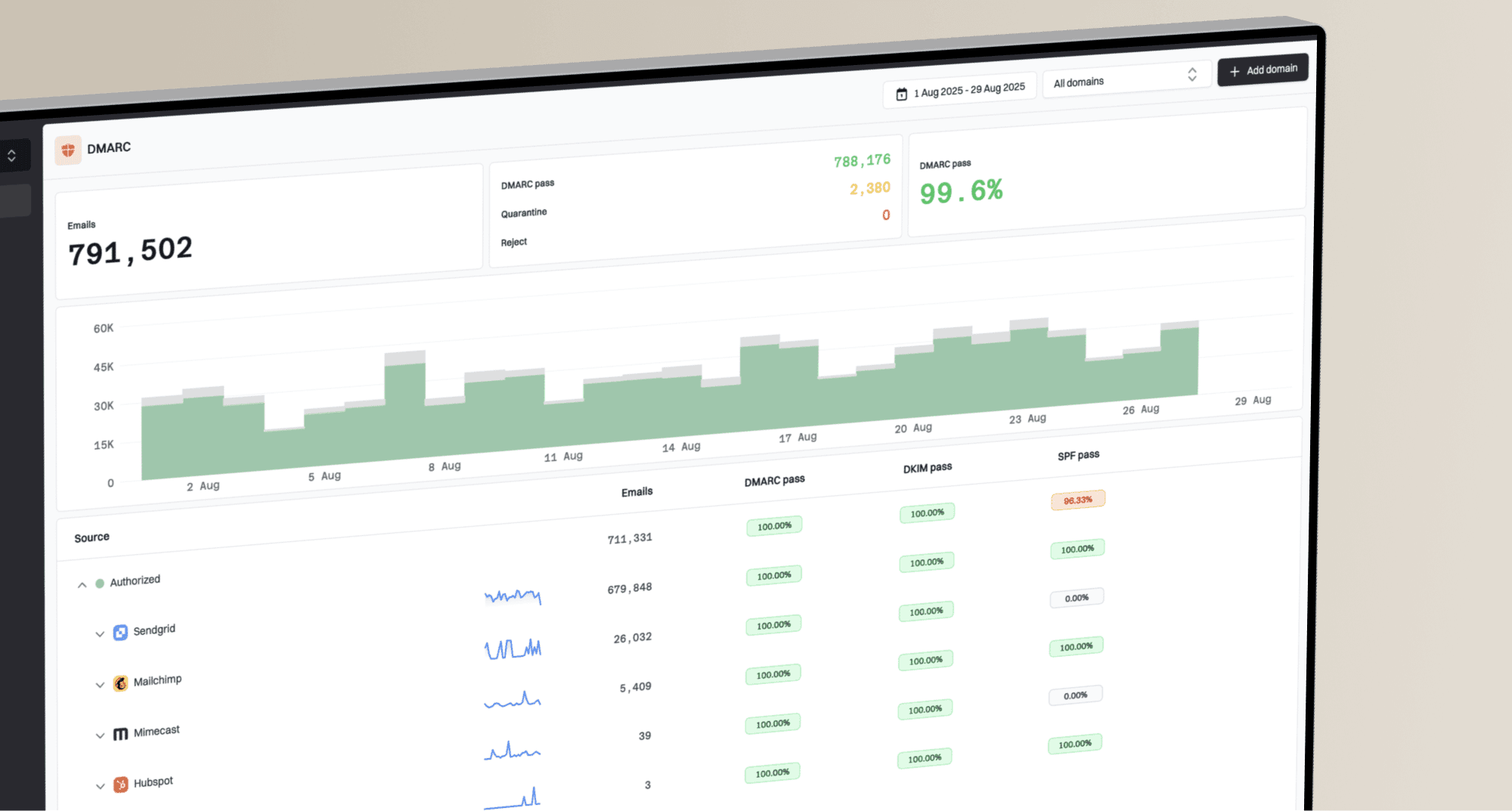ALPHANET Blackholes RBL DNS Blacklist


 Spamhaus
Spamhaus 0Spam
0Spam Cisco
Cisco NoSolicitado
NoSolicitado URIBL
URIBL abuse.ro
abuse.ro ALPHANET
ALPHANET Anonmails
Anonmails Ascams
Ascams BLOCKEDSERVERS
BLOCKEDSERVERS Calivent Networks
Calivent Networks EFnet
EFnet
 JustSpam
JustSpam Kempt.net
Kempt.net
 NordSpam
NordSpam RV-SOFT Technology
RV-SOFT Technology
 Scientific Spam
Scientific Spam Spamikaze
Spamikaze SpamRATS
SpamRATS SPFBL
SPFBL Suomispam
Suomispam System 5 Hosting
System 5 Hosting Team Cymru
Team Cymru Validity
Validity www.blocklist.de Fail2Ban-Reporting Service
www.blocklist.de Fail2Ban-Reporting Service ZapBL
ZapBL 2stepback.dk
2stepback.dk Fayntic Services
Fayntic Services ORB UK
ORB UK technoirc.org
technoirc.org TechTheft
TechTheft Spamhaus
Spamhaus 0Spam
0Spam Cisco
Cisco NoSolicitado
NoSolicitado URIBL
URIBL abuse.ro
abuse.ro ALPHANET
ALPHANET Anonmails
Anonmails Ascams
Ascams BLOCKEDSERVERS
BLOCKEDSERVERS Calivent Networks
Calivent Networks EFnet
EFnet
 JustSpam
JustSpam Kempt.net
Kempt.net
 NordSpam
NordSpam RV-SOFT Technology
RV-SOFT Technology
 Scientific Spam
Scientific Spam Spamikaze
Spamikaze SpamRATS
SpamRATS SPFBL
SPFBL Suomispam
Suomispam System 5 Hosting
System 5 Hosting Team Cymru
Team Cymru Validity
Validity www.blocklist.de Fail2Ban-Reporting Service
www.blocklist.de Fail2Ban-Reporting Service ZapBL
ZapBL 2stepback.dk
2stepback.dk Fayntic Services
Fayntic Services ORB UK
ORB UK technoirc.org
technoirc.org TechTheft
TechTheft Spamhaus
Spamhaus 0Spam
0Spam Cisco
Cisco NoSolicitado
NoSolicitado URIBL
URIBL abuse.ro
abuse.ro ALPHANET
ALPHANET Anonmails
Anonmails Ascams
Ascams BLOCKEDSERVERS
BLOCKEDSERVERS Calivent Networks
Calivent Networks EFnet
EFnet
 JustSpam
JustSpam Kempt.net
Kempt.net
 NordSpam
NordSpam RV-SOFT Technology
RV-SOFT Technology
 Scientific Spam
Scientific Spam Spamikaze
Spamikaze SpamRATS
SpamRATS SPFBL
SPFBL Suomispam
Suomispam System 5 Hosting
System 5 Hosting Team Cymru
Team Cymru Validity
Validity www.blocklist.de Fail2Ban-Reporting Service
www.blocklist.de Fail2Ban-Reporting Service ZapBL
ZapBL 2stepback.dk
2stepback.dk Fayntic Services
Fayntic Services ORB UK
ORB UK technoirc.org
technoirc.org TechTheft
TechTheft Spamhaus
Spamhaus 0Spam
0Spam Cisco
Cisco NoSolicitado
NoSolicitado URIBL
URIBL abuse.ro
abuse.ro ALPHANET
ALPHANET Anonmails
Anonmails Ascams
Ascams BLOCKEDSERVERS
BLOCKEDSERVERS Calivent Networks
Calivent Networks EFnet
EFnet
 JustSpam
JustSpam Kempt.net
Kempt.net
 NordSpam
NordSpam RV-SOFT Technology
RV-SOFT Technology
 Scientific Spam
Scientific Spam Spamikaze
Spamikaze SpamRATS
SpamRATS SPFBL
SPFBL Suomispam
Suomispam System 5 Hosting
System 5 Hosting Team Cymru
Team Cymru Validity
Validity www.blocklist.de Fail2Ban-Reporting Service
www.blocklist.de Fail2Ban-Reporting Service ZapBL
ZapBL 2stepback.dk
2stepback.dk Fayntic Services
Fayntic Services ORB UK
ORB UK technoirc.org
technoirc.org TechTheft
TechTheft Spamhaus
Spamhaus 0Spam
0Spam Cisco
Cisco NoSolicitado
NoSolicitado URIBL
URIBL abuse.ro
abuse.ro ALPHANET
ALPHANET Anonmails
Anonmails Ascams
Ascams BLOCKEDSERVERS
BLOCKEDSERVERS Calivent Networks
Calivent Networks EFnet
EFnet
 JustSpam
JustSpam Kempt.net
Kempt.net
 NordSpam
NordSpam RV-SOFT Technology
RV-SOFT Technology
 Scientific Spam
Scientific Spam Spamikaze
Spamikaze SpamRATS
SpamRATS SPFBL
SPFBL Suomispam
Suomispam System 5 Hosting
System 5 Hosting Team Cymru
Team Cymru Validity
Validity www.blocklist.de Fail2Ban-Reporting Service
www.blocklist.de Fail2Ban-Reporting Service ZapBL
ZapBL 2stepback.dk
2stepback.dk Fayntic Services
Fayntic Services ORB UK
ORB UK technoirc.org
technoirc.org TechTheft
TechTheftThe ALPHANET Blackholes RBL DNS Blacklist is a public blacklist (or blocklist) that lists IPv4 addresses that have exhibited malicious behavior. It operates as a volunteer project by ALPHANET and is used to block access to their services and by other system administrators who incorporate the list into their security measures.
This DNS blacklist is populated with data collected from a variety of sources. ALPHANET operates a network of spam traps and honeypots across different Autonomous Systems (ASes) which, along with logs from their real services, helps identify offending IP addresses. The criteria for adding an IP to this blocklist are straightforward:
Technically, the blacklist is available in two forms: as a Real-time Blackhole List (RBL) for DNS queries and as a downloadable file containing a complete list of IPs and CIDR subnets. They note the DNS list is not complete for technical reasons and advise against using it for high-traffic environments.
The ALPHANET Blackholes RBL DNS Blacklist is operated by ALPHANET, a non-profit organization that has been providing free services to the community since 1987. The organization's primary goal is to promote the use of free and open systems in telecommunications while providing reliable and sustainable services.
ALPHANET is guided by a charter that emphasizes technical independence, a preference for open-source solutions, and long-term, socially responsible approaches. Their long history, beginning with a telematic server in 1987 and evolving through decades of technological change, demonstrates their commitment to these principles.
ALPHANET has an automated delisting process. IPs are typically removed from the blacklist automatically after one week, provided the malicious activity has stopped. However, removal can sometimes take longer depending on the circumstances.
If you need to request manual removal, you must first ensure the issue causing the listing has been resolved. ALPHANET states that a listing usually has a reason, so you should investigate your systems thoroughly to see if they are sending spam, scanning services, or engaging in other harmful activities. They also suggest checking if your IP address appears on other blocklists.
Once you have secured your system, you can request to be unblocked by contacting ALPHANET's support team. They will process the removal as long as the IP is no longer actively attacking. You can send your delisting request via email to blackholes@alphanet.ch.
The impact of being on the ALPHANET Blackholes RBL DNS Blacklist is generally considered low. Because it is a smaller, volunteer-run project, it is not as widely used by major mailbox providers as other, more prominent blacklists.
However, some system administrators and organizations do use this blocklist to filter incoming connections and email traffic. If you are listed, you may experience email delivery failures or be blocked from accessing services hosted by networks that use this specific blacklist. While not a critical threat to your overall sender reputation, it is still advisable to seek delisting to avoid isolated delivery problems.
